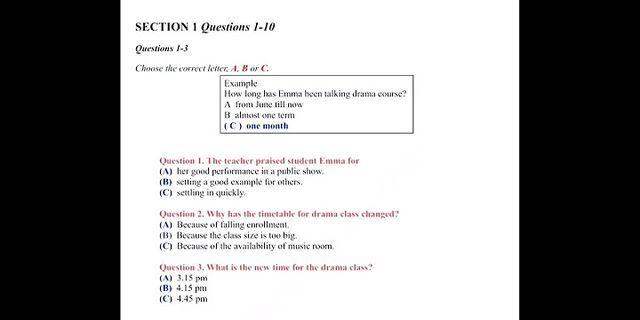


 Log in to add this offering to your saved list.
Sometimes we dream of a perfect social world; sometimes we imagine a nightmarish and miserable social order. And sometimes, what one person regards as a perfect society is regarded by others as perfectly horrifying. In this program we will delve into both literary and philosophical treatments of utopias and dystopias, seeking to understand both their shared impulses and their manifold differences. Our philosophical studies will center on in-depth readings of Plato’s Republic and of selections from Thomas Hobbes’ Leviathan; our literary selections will range from the political “fairy story” of George Orwell’s Animal Farm to the feminist utopias and dystopias of Charlotte Perkins Gilman’s Herland and Margaret Atwood’s The Handmaid’s Tale, respectively. Through these and other readings, we will explore the values that such visions of society embody, and what they may tell us about what to seek or avoid in our social interactions. In addition, we will consider what these utopian and dystopian visions may reveal to us about our own hopes, fears, desires, and motivations. Our program will include lectures, seminars, workshops, and film screenings; the faculty will provide students with explicit guidance and support in developing their skills as readers, writers, and critical thinkers. Students will document their new understandings by means of written responses, philosophical treatments, independent reading, bibliographic writing, and synthesis essays. Please note that the assigned reading for this program is both intellectually and emotionally demanding.
humanities, literature, and philosophy.
Why do we dream of a utopian future? Why do we have nightmares of a dystopian one? I have long wondered about our proclivity toward thinking about and wanting an ideal society and what that would entail. How might it be achieved? What would it look like? Similarly, why do we fear dystopic societies? How do they develop? What do they look like? In this latter case the answers are available from real experience. We have never had a real utopia, or at least we've not had an enduring utopia example, so the former remains the stuff of dreams while the latter has been known from experience. We are drawn to the ideal, the good, of a society in which there is happiness, no crime, no violence, cooperation, love, and harmony. We are repelled by the malevolent dictatorship, class-based and oppressive hierarchies, and societies rife with violence and dominated by competition for resources. We've seen the latter. We know what that is like and where it leads. Naturally we are afraid that our society will devolve into such a state. Utopias and dystopias are the subject of many tales, books and films. The former are treated as fantasies. The latter as precautionary tales of what could be if we let our guard down. The United States was once viewed by many as near-utopian, though that reputation has faded of late. All great empires have fallen. Too many parts of the underdeveloped world today are clearly dystopian. We seem to easily slip into chaos and brutality. Many people are now afraid that the world as a whole is slipping into a dystopian future. But I still think about why we think about utopia. The word was coined by Sir Thomas Moore (see the Wikipedia article) to describe a land of perfect harmony, but unrealistic and impossible to obtain. The real derivation of the word is eu-topia, 'eu', Greek for good or true, and 'topia', Greek for place. Moore seems to have been playing with the sound of the Greek word 'ou', which means not and sounds the same as 'eu'. In any case utopia is acknowledged as a mythical place, either some state of human existence in the distant past (as in Rousseau's nobel savage), or a sought, if distant, future for humanity. But the concept of a perfect society dates back at least to Plato's Republic. Meanwhile we have to go through ordinary, take-the-bad-with-the-good, societies that, too often falter and let the bad exceed the good. Our lot seems to be to have a mixture of good and bad. And we often don't know which is which. And we dream. But why is this? Why do we think about the possibility of eutopia if we believe that it is just an impossible ideal, a 'utopia'? I suspect that deep inside our psyches we know it is not impossible that such a society could exist. We also know that it can't be populated with members of Homo sapiens. We know, instinctively, that we are not yet able to be the kind of people that would be required for such a society to exist and prosper. We have known we have flaws of character since earliest times. This is why we have the myth of original sin in the Abrahamaic religions, and versions of a similar kind in other religions, e.g. dharma in the Vedic tradition, where each person must reincarnate until they get it right and reach enlightenment. Formal, explicit moral codes exist to thwart our flawed nature. We submit to life under rule of law in order to reinforce our good side and minimize our bad side. But here is what I suspect: We don't really have a bad meaning evil) side per se. Rather we are adapted as biological creatures to live in small bands of relatives and close friends, a tribe, where life is dominated by the good side (love, compassion, empathy, sharing, caring, cooperating, etc.) and the bad side is geared toward special circumstances to keep our species viable in an uncertain world. We are able to anger or be aggressive when circumstances (such as an invasion of territory by a strange tribe) demand it. We can feel hatred for the 'others'. We can seek revenge on those who cause us pain, and so on. We are not all love and fluff. We have a hard side that served us evolutionarily. The problem is that in larger-group societies that have evolved subsequent to agriculture and industry we are thrust into social situations that tend to bring out the worst in us more often than we like. And we know it. Sapience emerged as an advanced executive function in the brains of the hominid line as a means to harmonize our strategy of collective survival. Wisdom, the knowledge of how best to use knowledge, evolved as a way to increase the scope, in time and space, of our judgments, to include more of our kind in moral decisions for the good of the many. And it gave us a bit of insight into eutopia. Unfortunately, our cleverness produced technologies that soon overshadowed the role of wisdom. We needed organization and command-and-control mechanisms to muster agriculture and, later, civic projects like pyramid building. What sapience had evolved gave us a peek at how the good side might predominate. But it was just a peek. The need for governance structures and especially the turn toward coercion and force to maintain those structures led us down a different path. Here is what sapience does for us on the positive side. To understand sapience's role in mentation lets look at an example of how the human brain deals with the drive of emotions and the processing of context to modulate that emotion. Suppose you are walking in a field one day and notice something slithering in the grass in front of you. What do you do? You freeze until you determine whether the slithering is anything to be concerned about. Then you take an action depending on your assessment of the situation. What is going on in the brain is roughly this: Your eyes register the slithering and an early processing part of your vision system, in the ancient thalamic centers, registers the type of motion as being of interest to your biological survival. Your amygdala decodes the motion as that of a snake and triggers the alarm response in your lower response mechanisms — you freeze and have a rush of adrenaline. Meanwhile, the vision is passed to the early cortical vision processing centers where the more detailed features of the phenomenon are recognized and passed upward to produce an image of a snake. Now bear in mind that your conscious mind is not yet aware of what is being reacted to. At this instant your reaction is purely instinctive and preconscious. It will take a few milliseconds before your brain can fully process the situation and integrate all of the evidence in your parietal cortex and pass that on to the prefrontal cortex for evaluation. At the same time the amygdala was decoding the danger component of the vision, it and other limbic centers were passing information directly to the prefrontal cortex, essentially passing on the fact that you are in a fearful state. The fear came first, followed by a realization that you were afraid! Thus the situation, snake in the grass, possible danger, fear, all arrive in the prefrontal cortex where more detailed evaluation can take place. This is where your intelligence comes into play. What kind of snake is it? You've learned, in your life, that there are poisonous and non-poisonous snakes (as well as other things that seem to slither in grass, like lizards). You now call on your knowledge base to compare this instance with what you know about snakes. Suppose this is a bull snake, non-harmful. If you know what a bull snake is, your prefrontal executive functions determine that you are not in danger and sends damping signals back to your limbic system, which has mustered your fight-or-flight response just in case. In other words, your prefrontal cortex has overridden your automatic fear response while the rest of your frontal lobe plans and causes the execution of your considered response. In the case of a bull snake you just keep walking by. Had it been a rattlesnake, your actions would have been different. The point of this example is that the prefrontal cortex plays a vital role in modulating your emotions and feelings. It does this with a rich recurrent interaction directly with the limbic centers, unlike most of the rest of the cerebral cortices. It acts on judgment of the situation to guide the rest of intelligence and creativity to do the right thing under the circumstances. This is the beginning of sapience. A lesser animal would simply react, run, and never consider what other possibilities might have obtained. Of course our near ape relatives possess some competency in this area, especially for basic life situations such as this example. My point in using this example is simply to map out how the human brain deals with situations having high emotional content. It is in the area of social interactions that the human brain really shines. Chimpanzees are social and make social judgments all the time. But in humans the plethora of social situations is legion, requiring substantially more sapience to manage the complex sets of emotions and feelings that arise in those interactions. And those interactions are, many times over, multi-way, rather than one-on-one. They are, essentially, all emotion laden. Our biology is as committed to sociality as the gazelle's is to running from lions. Everything we do in groups has some biological consequence, especially reproduction. Thus we are rife with complex emotions triggered by every social situation. It takes a much more powerful sapience capacity to manage all that seething emotional energy (not counting brain pathologies). Humans have evolved enough sapience to handle most small-group situations. We have even got a capacity to be members of different not always overlapping groups (e.g. work, social club, family, neighborhood) with varying success. But at spatial scales much beyond a few miles, like state, nation, and world, we begin to break down. Judgment fails more often than not it seems. And our societies tend toward dystopia. Our capacity for temporal, especially multi-generational, judgement appears to be restricted to time spans covering our children and grandchildren, and then only for them. We have a tendency to deeply discount the future. So one of the functions of sapience in the brain is to manage (strategically) our emotions, and, in particular our negative emotions, which could, if otherwise left unmanaged, lead us to the worst dystopian nightmares. We have done it well enough to produce our highly stressful world, but now I think we've reached, nay, exceeded, our limit of competency. We are haunted by dystopian nightmares because we see the real possibility of sinking into that hell. Yet our limited sapience has given us a glimpse of what could be and nightmares of what is all too likely in our current state. More capacity to manage our emotions (as well as our intelligence and creativity) would result in more of the good side and less of the bad in inappropriate situations. Better judgements based on what is good for all (meaning the whole world not just what is good for my country), if operative at the individual citizen as well as leadership level, could result in a more eutopian society. Not a perfect society, since no one would be able to say what perfection means. But it could be closer to the ideals we tend to think about when we do imagine a eutopian world. Eutopia is a fantasy for Homo sapiens. But it need not be a fantasy period. It is not beyond the pale to consider a more advanced prefrontal cortex with more processing capacity and more connections to the limbic system. That is the direction the evolution of our brains has been taking. We are just a signpost along that way. There is nothing that I can think of that prevents further development of the brain in this direction. Except, of course, extinction of the species before a transition to a new species can occur. I am convinced that the evidence supports the possibility of a Homo eusapiens species to replace us and carry on the development of symbol manipulating intelligence with truer wisdom. In spite of all the challenges we face and threats to our very survival, I still dream of Eutopia. |




















